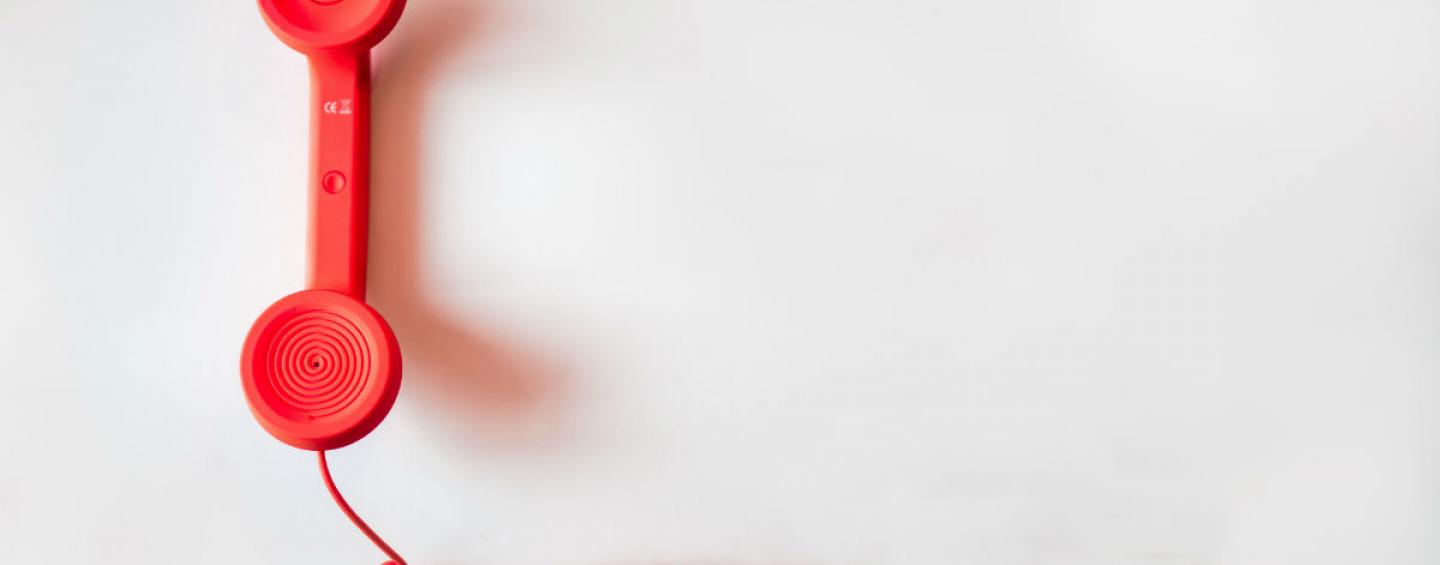
Emergencies and help lines
The Netherlands is one of the safest countries in the world. Crime rates are low, the law is strictly enforced and there are excellent security measures. Whether you need the police, fire department or medical care during an emergency, they are there when you need them. As well as some other measures you may not be familiar with.
Emergencies
In case of an emergency, you should call 112. By calling 112, you can contact the police, fire department or medical care.
Police
If you do not have an emergency, but you still need to contact the police, you can call 0900-8844. You can also report certain crimes online.
Medical care
If you are not in an emergency but need to speak to a medical professional you can contact your GP. During outside of office hours, you can call the huisartsenpost (out-of-hours medical clinic).
- In The Hague, Rijswijk and Leidschendam-Voorburg, you can call Hadoks in evenings and weekends: +31 70 346 96 69
- In Delft, you can call Huisartsenpost Delft in evenings and weekends: +31 15 251 19 30
Sirens on the first Monday of month
If you are new to The Netherlands, you may wonder at noon on the first Monday of the month why you are suddenly surrounded by loud sirens everywhere. This the Waarschuwingsstelsel – The Warning System. It is tested every month to ensure it works properly, reaching everybody across the country in case of an emergency, with 4200 sirens. They can be operated individually by regional fire departments and are owned by the Ministry of Internal Affairs.
If you hear this sound and it is not midday on the first Monday of the month, it is a warning to go inside, shut all doors and windows and turn on your television or radio for updates. You can also check the website Crisis.nl (which is in Dutch) to see if there are current warnings.
NL-Alert for Crisis
The new NL-Alert crisis system will allow authorities to warn people within the immediate area of an emergency situation (e.g. a major fire or flooding) by sending a text message to their mobile phones.
The text message will describe the situation and give instructions on what to do at that moment. All mobile phones in the relevant area will receive these messages automatically, provided that the NL-Alert channel has been activated and the phone is switched on and has reception. It is free of charge and it is not necessary to register.
The messages are set by means of cell broadcasting, comparable to a radio signal. They are sent by way of the cell phone providers' transmitter masts. As a result, NL-Alert will still function in the event of network overload.
Over half of all cell phones in the Netherlands, around 11 million in total, are already able to pick up an NL-Alert message. An increasing number of mobile phones are being sold with an automatic NL-Alert setting.
As such, this new tool is a valuable addition to the existing means of warning people about emergency situations, such as the siren, the emergency broadcasting stations, and the Crisis.nl website.
Amber Alert
In case that there is a child missing in your area, you may receive a so-called Amber Alert on your phone. This will feature a description of the situation and the missing child, so people can be aware of the missing person.
Weather Alerts
In case of severe weather, KNMI will sometimes issue warnings to the areas affected. This could regard heavy snowfall, extreme wind or other threatening situations. They will send out a warning through their website and public broadcasts.
NS train alerts
In case of extreme weather conditions or so, the NS (Dutch Railways) may be dealing with delays or dangerous situations on the tracks. This will often lead to a temporary halting of all train traffic. In this case, national media and the NS will do everything to notify residents of the Netherlands who may be affected.
Important phone numbers
Emergencies in the Netherlands
- General emergency line: 112
- Police: 0900-8844
- Anonymous Crime Reporting line: 0800-7000
- Fire brigade Haaglanden: +31 (0)88 886 80 00
- Fire brigade (for non-emergencies): +31 (0)88 246 55 00
- GP (Hadoks) in evenings and weekends: +31 (0)70 346 96 69
- ANWB Alarm centre: +31 (0)88 269 28 88
- Dentist emergency services Haaglanden: +31 (0)70 311 03 05
- Veterinary services The Hague (08:00 - 20:00): +31(0)70 325 59 07
- Animal ambulance: +31 (0)70 328 28 28
Emergencies abroad
- Ministry of Foreign Affairs (also for emergencies): +31 (0)24 724 72 47
- Eurocross International (for emergencies abroad): +31(0)71 364 62 00
- SOS International (for emergencies abroad): +31 (0)20 651 51 51
Help lines
- Victim Support Netherlands: 0900-0101
- Suicide help line: 0900- 0113
- Sexual abuse help line: +31 (0)70 362 04 96
- Drug Abuse help line: +31(0)70 391 78 00
- Child help line: 0800-0432
In case of stolen or lost banking cards
- Block all banking cards: 0800-0313
- Block all banking cards (from abroad): +31(0)30 283 53 72
Utility emergencies
- Gas and electrical emergencies: 0800-9009
Contact your municipality
- Municipality of The Hague: 14070
From abroad: +31 (0)70 353 30 00 - Municipality of Delft: 14015
From abroad: +31 (0)15 260 22 22 - Municipality of Rijswijk: 14070
From abroad: +31 70 326 10 00 - Municipality of Leidschendam-Voorburg: 14070
Embassies
If you are in urgent need of assistance of your country of origin, you should contact your embassy. The Hague currently has more than one hundred embassies from all over the world; other embassies may be located elsewhere in the Netherlands.